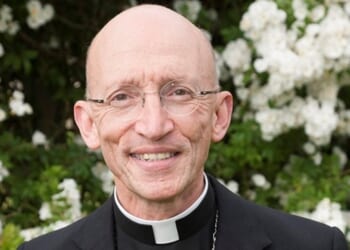THIS collection of essays of various length, depth, and quality originated in a Church of England Faith and Order Commission working group on missional ecclesiology (a vital topic) that evolved into a conference held at Bishopthorpe, York, in 2023. Apparently a wide range of perspectives was represented there, and a consensus proved elusive. Some of that diversity is reflected in the book, though the centre of gravity is definitely Evangelical missional action. Against that background, some authors are urging a greater integration of worship and mission, though they are doing so with minimal reference to the dominical sacraments of the gospel, which actually structure worship, especially in the case of the eucharist.
The range of contributions includes some local case studies of what the authors were able to achieve under God. Attention is also given to post-colonial, migration, and conservation issues. The editors state that “the essence of the church [is] primarily a set of relationships” (= “people of God”) and that these are often obscured by our institutions and structures. This is doubtful: Al Barrett shows that an integration of worship, outreach, and community is achievable, and others are on the same wavelength. Sharon Prentice is moving on the virtuous character of the community that we seek in the Church: inclusive, diverse, receptive, and tender-hearted. The Herefordshire archdeacon Fiona Gibson eloquently evokes the patient, faithful, and relational witness of the Church over the long term which characterises rural ministry.
But the essence of the Church is the Body of Christ and the action of the Holy Spirit within the Body; the relations between its members are dependent on that and subservient to it. Lip service is paid to ecclesiology (as in the subtitle), but the ecclesiology of this book is largely upside-down: the human dimension above the divine and almost eclipsing it. The Bishop of Exeter, Mike Harrison, nobly attempts to draw the threads of this diverse collection together. He finds a leading theme to be “participation”, but I suspect an element of wishful thinking there. He is correcting the overall tendency of the book when he rightly insists that our primary focus must be on the initiative and action of God.
Some authors blithely use the phrase “the gathered church” without realising its sectarian historical background and connotations. Others harp on about “the local church”. Neither party seems to think in terms of “the parish”, the given sphere of the Church’s ministry-as-mission comprising the Word, the sacraments, and pastoral care in every place.
My own conviction is that we should be looking more outward than inward, giving more thought to those on the fringes and beyond, than, as we tend to do, to those who make up the internal organisation of “leadership teams”, “ministry teams”, and “worship teams”.
The section headings (“Being Worship”, “Being Witness”, “Being Pilgrim”) jar with me as ungrammatical, clunky, and opaque; I’m surprised they were allowed. The vast swaths of people in our communities who feel wounded and alienated from the Church because of rejection or abuse, and deserve love, care, and healing, are completely out of mind. The Good Shepherd seeks out the lost, above all else. In his contribution, David Monteith, the Dean of Canterbury, shows how cathedrals represent the antithesis of “the gathered church”.
Alison Milbank fights back about the widespread prejudice that mission and the sacraments are two separate areas of the Kingdom of Christ, that the eucharist is not really proclamatory of the gospel, and that the journey of Christian initiation, through instruction in the faith, baptism, and confirmation, participation in the Church’s eucharistic celebration, and first communion, is at best peripheral to “mission”. Milbank argues — and has apostolic authority for saying so (1 Corinthians 11.26) — that “in its essential character, the Eucharist is a wholly evangelistic act.”
The authors are practitioners rather than academics, and it is good that they should be given a voice. There is an unresolved debate going on. Nevertheless, the spirit of activism is never far beneath the surface (and is deplored by some contributors). We should remind ourselves that, according to scripture, we cannot “build” or “bring in” or “extend” the Kingdom of God by our actions. In scripture, the Kingdom can only be “received” as a gift and act of God, one that that brings judgement as well as mercy.
The ecclesiology here is impoverished; otherwise Christology, pneumatology, the sacraments, and the orders of ministry would be more evident. The missiology is derivative and narrow: there are many dimensions of the missio Dei, in which the Church is privileged to participate, beyond those that dominate here. There is a vacuum of biblical exposition. To that extent, the subtitle claims too much.
A brief “postscript” chapter by Paul Bradbury seems to be urging: “Don’t forget the Holy Spirit!” A key question, raised for me by this collection, is “Where is the Holy Spirit?” Outside as well as inside the Church? Present in other religious traditions and communities? Active in social and cultural movements? Witnessing in conscience to all persons? If we were more aware of the divine activity beyond the Christian Church, we would not trumpet: “We are the people of God.” It smacks of complacency, exclusivity, and self-righteousness.
The Jewish people (to look no further among the world’s religious communities) are also “the people of God”, and all persons are, in a certain sense, the children of God. I thought of this on the day of the terrorist attack on the Manchester synagogue. In that light (but not only that), the title seemed inept. There is obviously a proper place for the concept of the people of God, but not in detachment from the Jewish people, as Romans 11, 1 Peter 2, and the Second Vatican Council teach.
The Revd Dr Paul Avis is Honorary Professor in the School of Divinity of the University of Edinburgh, and Editor-in-Chief of Ecclesiology.
Being the People of God: Missional ecclesiology in uncertain times
Paul Bradbury, Isabelle Hamley and Andy Smith, editors
SCM Press £40
(978-0-334-06642-2)
Church Times Bookshop £36

















